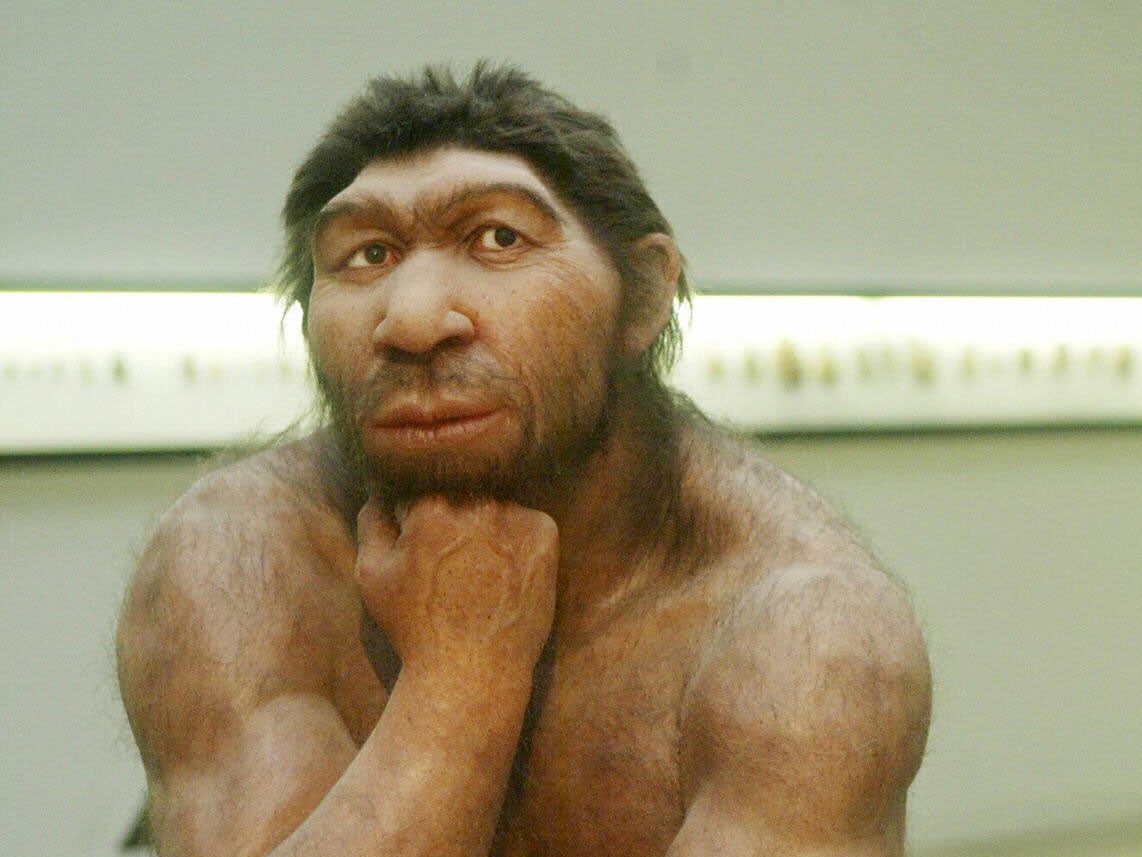Sex with Neanderthals may be the cause of modern allergies, studies suggest
Important genes picked up from Neanderthals which contribute to the human immune system may also be the cause of common allergies, studies say

If you're ever bothered by the problems caused by allergies, just blame your distant ancestors for having sex with Neanderthals.
Studies suggesting that prehistoric interbreeding between early humans and neanderthals could have resulted in modern allergies have been published in the American Journal of Human Genetics, a high-profile journal dedicated to the study of our genes.
The theory states that unusual genes that can cause allergies were passed on to early humans when they bred with Neanderthals and Denisovans, a separate species of early hominid who lived in Asia, after humans migrated out of Africa.
The Neanderthals and Denisovans had been living in Europe and western Asia for hundreds of thousands of years before humans arrived, and thus had adapted to the local pathogens.
Through breeding with these local species, humans eventually picked up Neanderthal and Denisovan genes, making them resistant to these pathogens too.
Through studying human DNA collected by the 1,000 Genomes Project, a team from the Max Planck Institute for Evolutionary Anthropology in Leipzig, Germany found three of these genes that still play a role in human 'innate immunity'.
'Innate immunity' refers to important mechanisms in the human immune system, which react to infections immediately before calling in other parts to deal with a specific problem.
Picking up these important genes allowed humans to travel throughout the world and colonise new areas without being made extinct by diseases that they had no defence against.
However, even though these Neanderthal and Denisovan genes played an important role in our history, they create problems for people who still carry them.
These genes which quickly react to harmful pathogens can also cause the immune system to overreact to certain things, such as pollen or animal hair, possibly leading to allergies developing in some carriers.
As Janet Kelso from the Max Planck Institute told NPR, "I suppose that some of us can blame Neanderthals for our susceptibility to common allergies, like hayfever."
While the origins of our modern allergies may be interesting, the discovery is hugely significant in terms of understanding human history, as it sheds light on how much human breeding with other early species may have affected our evolution.
Join our commenting forum
Join thought-provoking conversations, follow other Independent readers and see their replies
Comments
Bookmark popover
Removed from bookmarks